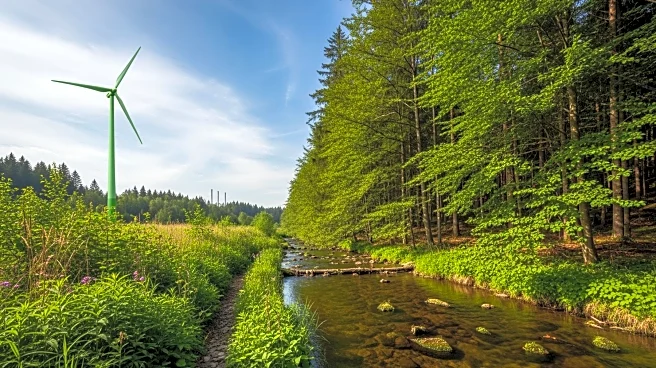What's Happening?
Governor Kathy Hochul has approved a controversial natural gas pipeline project off the coast of New York City, which had been stalled for years due to water quality concerns. The pipeline, known as the Northeast
Supply Enhancement, is backed by President Trump and aims to provide a reliable energy supply to New York City as it transitions to a carbon-neutral economy. Hochul's decision follows pressure from the White House and comes after a meeting with President Trump, who has been advocating for pipeline projects in New York. The approval has sparked criticism from environmental groups and some Democrats, who argue that the pipeline poses a threat to local waterways and contradicts efforts to combat climate change.
Why It's Important?
The approval of the pipeline is significant as it highlights the ongoing debate between energy needs and environmental protection. While business groups support the pipeline for its potential to ensure a stable energy supply, environmentalists and some political leaders view it as a setback in the fight against climate change. The decision may impact Hochul's political standing, as she faces criticism from both environmental advocates and political opponents. The pipeline's approval could also influence future energy policies and projects in New York, setting a precedent for balancing economic and environmental priorities.
What's Next?
The pipeline's approval may lead to further political and legal challenges, as environmental groups and some Democrats have vowed to oppose the project. Hochul's decision could become a focal point in upcoming elections, with opponents using it to question her commitment to environmental issues. Additionally, the pipeline's construction and operation will likely be closely monitored by both supporters and critics, potentially affecting future energy infrastructure decisions in the region.
Beyond the Headlines
The pipeline approval raises broader questions about the influence of federal pressure on state-level decisions and the role of political alliances in shaping energy policy. It also underscores the tension between economic development and environmental stewardship, a challenge faced by many states as they navigate the transition to sustainable energy sources.











